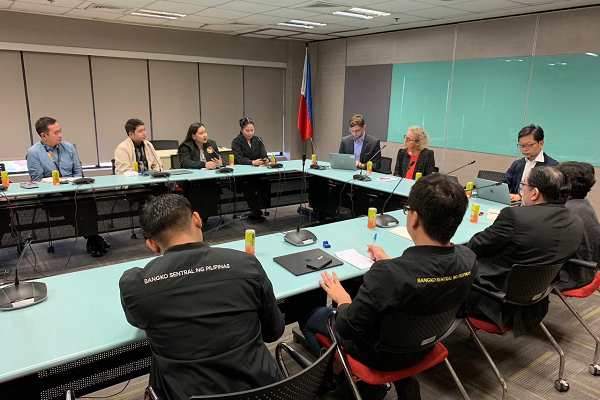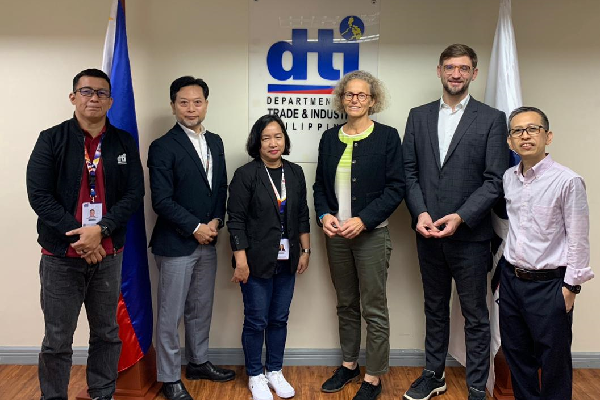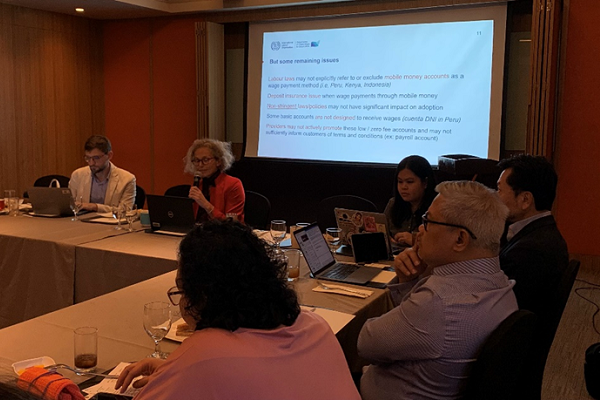Contact us: digitalwages@ilo.org
Bilateral and roundtable meetings held with social partners from the Philippines

The ILO’s Global Centre on Digital Wages for Decent Work recently engaged in discussions with partners in the Philippines to exchange updates and explore potential collaborations in promoting digital wage payments.
At the Bangko Sentral ng Pilipinas (BSP, the Philippine central bank), officials from its Financial Inclusion Office, Economic and Financial Learning Office and Policy Payments and Development Department provided insights into their efforts on financial inclusion, financial education and digital payments, respectively. The BSP officials welcomed the ongoing partnership with the ILO’s Global Centre, which is aligned with their vision for an inclusive, resilient and less cash-dependent society. Additionally, the BSP extended an invitation to the ILO to participate in its annual Financial Education Stakeholders Congress in November.

At the Department of Labour and Employment (DOLE), officials of its Bureau of Working Conditions and National Wages and Productivity Commission, acknowledged the significance of advocating for digital wage payments in local enterprises, emphasizing its empowerment for workers. The DOLE invited the ILO to address responsible digital wage payments in their regular “Webinar Wednesdays”. Both sides explored integrating digital wage payments into the criteria for the “Productivity Olympics” programme and “Annual Establishment Report Survey” to monitor progress.
The Department of Trade and Industry’s Bureau of Small and Medium Enterprise Development (BSMED) officials shared initiatives to digitalize the country’s MSMEs, recognizing the importance of wage digitization in this process. BSMED sought reference materials from the ILO for their MSME Digitalization Agenda and Work Plan. They also invited the ILO to participate in a workshop in November and contribute to BSMED’s MSME DigiTalks Podcast Series.

Aside from bilateral meetings with government agencies, the ILO organized a roundtable discussion involving key stakeholders from the government, employers’ organizations, workers’ groups, financial and payroll service providers and the banking community. The dialogue aimed to foster collaboration and address challenges related to responsible digital wage payments. The ILO’s Global Centre shared its experiences in other countries (including Cambodia, Indonesia, Kenya, Mexico, Peru) and participants discussed challenges and potential actions for a responsible transition in the Philippines.
The ILO also conducted separate meetings with the Founding Chairperson of Fintech Alliance.PH and representatives of the Trade Union Congress of the Philippines (TUCP). The focus was on collaborating to support enterprises and workers in adopting digital wage payments. Discussions highlighted the importance of addressing concerns such as reasonable costs, adequate infrastructure and enhancing digital and financial literacy. Both the Fintech Alliance and TUCP expressed willingness to work with the ILO and local stakeholders on activities addressing these concerns.
